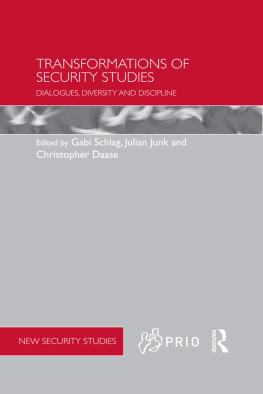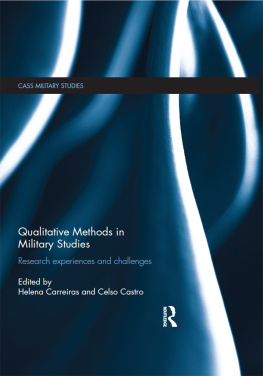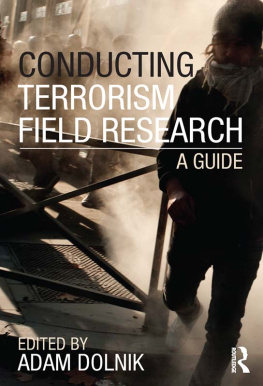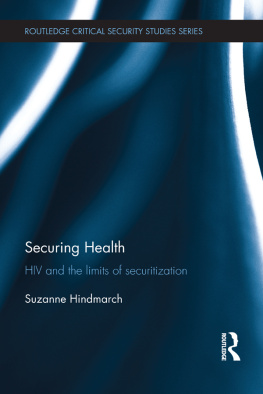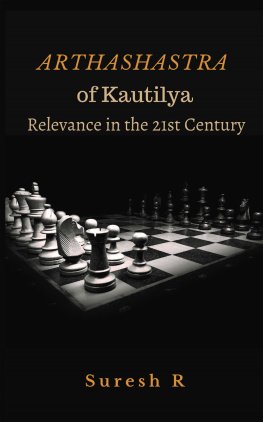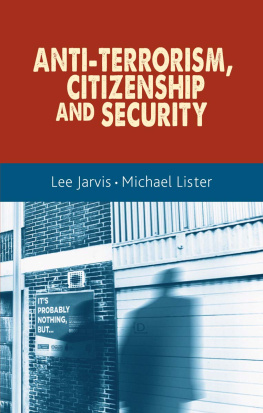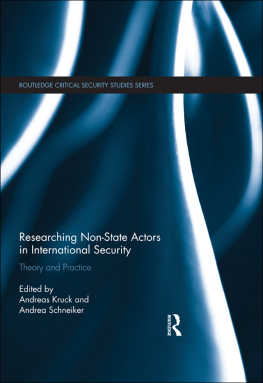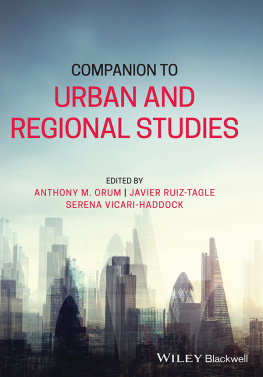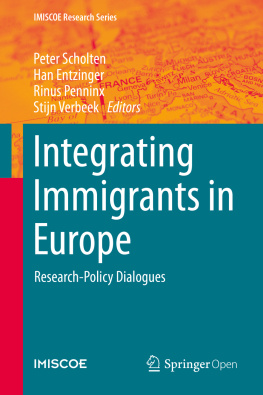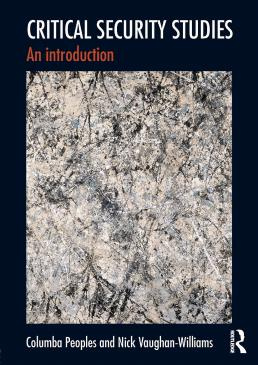Transformations of Security Studies
This volume brings together a group of distinguished scholars to engage in a dialogue on key developments in the study of security.
The book provides a comprehensive overview of theoretical, empirical and methodological developments within security studies, the political and societal importance of which has grown significantly in recent years. By bringing together scholars who hold differing perspectives on security, this volume provides insights into a variety of approaches and their newest developments, including mainstream as well as heterodox perspectives on security. Thus, it aims to build bridges of communication between different camps by initiating a dialogue on the identity and diversity of security studies. It does so in three parts. The first part of the book includes paradigmatic approaches to security that are closely connected to major debates in international relations such as realism, institutionalism and constructivism as well as approaches to the culture and ethics of security and critical security studies. The second part places emphasis on the broadening and deepening of the concept of security in recent decades. It discusses key empirical frontiers including the continued centrality of the state, the link between democracy and security, and environmental security as well as financial security. The third part of the book presents various methodological approaches to the question of security and peace. It provides an overview of new approaches such as the visual turn, quantifying security and method combinations.
This book will be of much interest to students of critical security studies, international relations and research methods.
Gabi Schlag is Teaching Associate and Research Fellow at the Otto von Guericke University Magdeburg, Germany, and holds a PhD from the Goethe University Frankfurt, Germany.
Julian Junk is a Researcher at both the Peace Research Institute Frankfurt and the Goethe University Frankfurt, Germany.
Christopher Daase is Professor of International Organization at the Goethe University Frankfurt, Germany, and co-editor of Rethinking Security Governance: The problem of unintended consequences , (Routledge, 2010, co-edited with Cornelius Friesendorf).
PRIO New Security Studies
Series Editor: J. Peter Burgess, PRIO, Oslo
The aim of this book series is to gather state-of-the-art theoretical reflection and empirical research into a core set of volumes that respond vigorously and dynamically to the new challenges to security scholarship.
The Geopolitics of American Insecurity
Terror, power and foreign policy
Edited by Franois Debrix and Mark J. Lacy
Security, Risk and the Biometric State
Governing borders and bodies
Benjamin J. Muller
Security and Global Governmentality
Globalization, governance and the state
Edited by Miguel de Larrinaga and Marc G. Doucet
Critical Perspectives on Human Security
Rethinking emancipation and power in international relations
Edited by David Chandler and Nik Hynek
Securitization Theory
How security problems emerge and dissolve
Edited by Thierry Balzacq
Feminist Security Studies
A narrative approach
Annick T. R. Wibben
The Ethical Subject of Security
Geopolitical reason and the threat against Europe
J. Peter Burgess
Politics of Catastrophe
Genealogies of the unknown
Claudia Aradau and Rens van Munster
Security, the Environment and Emancipation
Contestation over environmental change
Matt McDonald
Securitization, Accountability and Risk Management
Transforming the public security domain
Edited by Karin Svedberg Helgesson and Ulrika Mrth
Commercialising Security
Political consequences for European military operations
Edited by Anna Leander
Transnational Companies and Security Governance
Hybrid practices in a postcolonial world
Jana Hnke
Citizenship and Security
The constitution of political being
Edited by Xavier Guillaume and Jef Huysmans
Security, Emancipation and the Politics of Health
A new theoretical perspective
Joo Nunes
Security, Technology and Global Politics
Thinking with Virilio
Mark Lacy
Critical Security and Chinese Politics
The Anti-Falungong Campaign
Juha A. Vuori
Governing Borders and Security
The politics of connectivity and dispersal
Edited by Catarina Kinnvall and Ted Svensson
Contesting Security
Strategies and logics
Edited by Thierry Balzacq
Conflict Resolution and Ontological Security
Peace anxieties
Edited by Bahar Rumelili
Biopolitics of Security
A political analytic of finitude
Michael Dillon
Security Expertise
Practice, power, responsibility
Edited by Trine Villumsen Berling and Christian Bueger
Transformations of Security Studies
Dialogues, diversity and discipline
Edited by Gabi Schlag, Julian Junk and Christopher Daase

